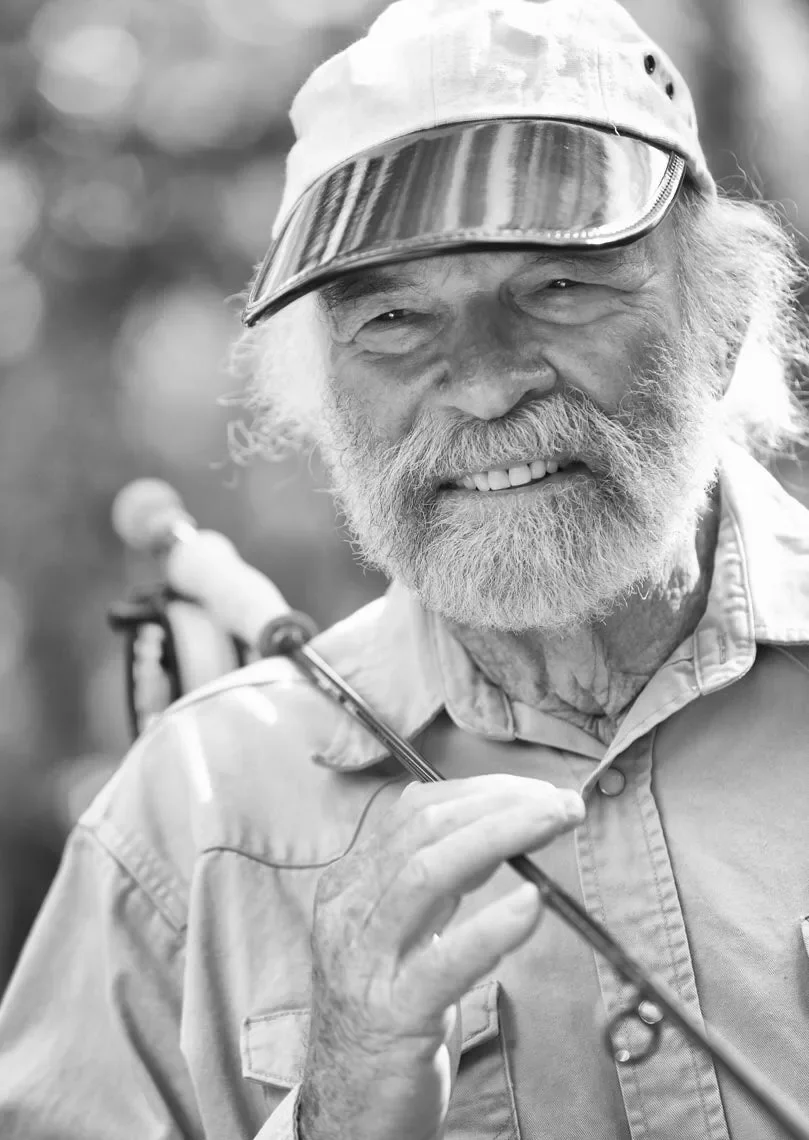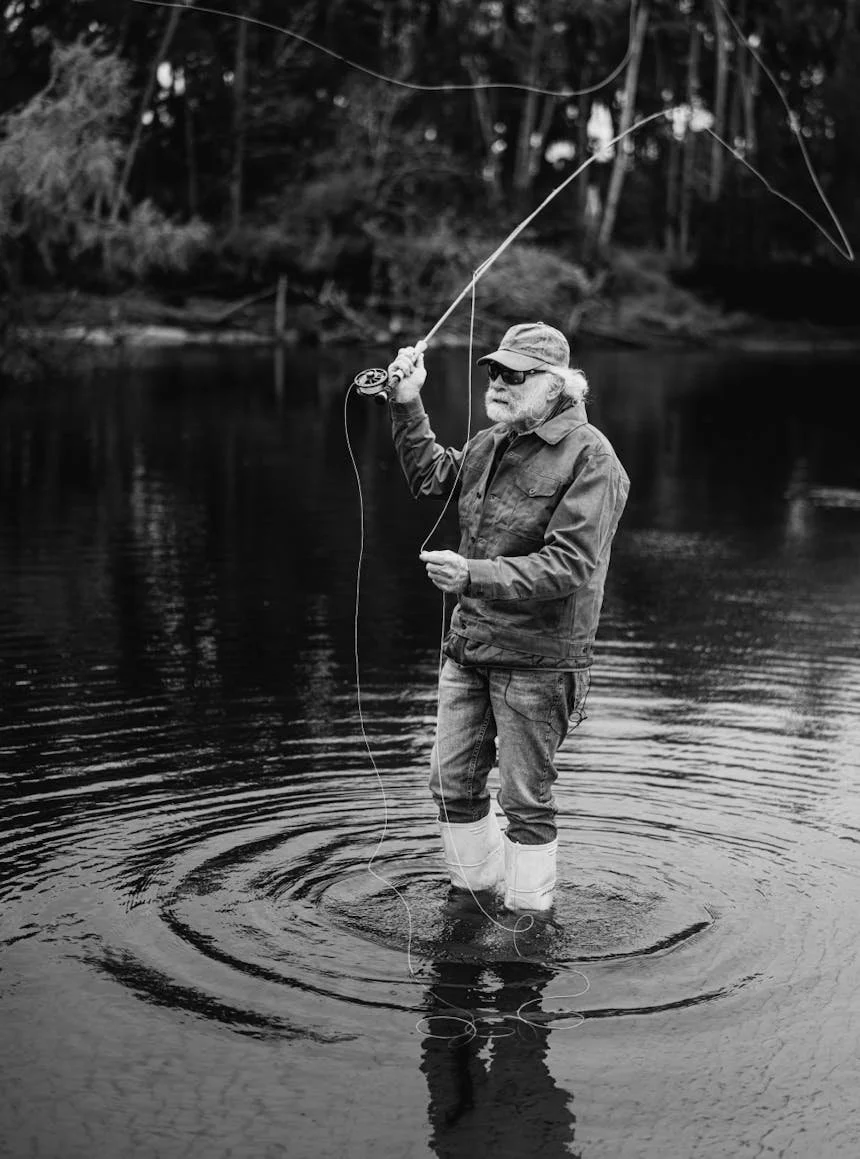The Legacy of Flip Pallot & the Ripples we Leave
Among my fly-fishing heroes, few stand taller than Flip Pallot. Yes, he was a saltwater angler - his life’s work played out on the flats, mangroves, and tidal creeks of Florida, a world away from the rivers and catchments of Devon. And no, I haven’t completely lost the plot by writing about someone from across the Atlantic who fished waters so different from ours. Stick with me here, it’ll be alright, I promise!
What Flip stood for went far beyond geography or salt versus freshwater; this is why it resonates so deeply with me. He lived and breathed an ethos: respect for wild places, generosity in teaching others, and the importance of leaving something meaningful behind.
Flip Pallott - 1942 - 2025
When news of his passing on the 26th of August reached me, like any loss, I felt it. Mortality is no mystery, and I know there have been other influential anglers who’ve left us in recent years - John Gierach, with his quiet wit and genius with words, and then Lefty Kreh, perhaps the finest single-hand caster of them all. Yet Flip’s absence stirred something different. I never met him, but his influence crept into my own fishing life through his words, his films, and his reputation. More than sadness, it left me asking: what legacy will I leave - what legacy do we all eventually leave?
Flip’s story reminded me that the marks we leave on the water, on land, and on people are the truest reflections of who we are. So strap in, and for those of you who’ve never heard his name before, hopefully you can see where I’m going with this!
Flip’s Life - Rooted in Water
Flip grew up exploring the wild edges of Florida - Biscayne Bay, the Everglades, and the Florida Keys. With his close friends, he discovered not only how to catch fish but how to pay attention to the small things that really matter: to tides, to wildlife, to the rhythms of an ecosystem far greater than any one person who labels themselves an angler. After serving as a linguist in Panama (I bet he had some colourful stories!), he returned to guide in his local area professionally for a decade before stepping into the role for which many remember him: storyteller.
The Walker’s Cay Chronicles was a TV show that ran for fourteen seasons in the US, and it was unlike anything anglers - or non-anglers - had seen before. It wasn’t about big fish or trophies. It was about the pulse of special places, the frustration and humility of pursuit, and the fragility of habitats that deserved our care. Deep down, I want to believe that back in the day, he watched an episode of Kite’s Country by the late, great Oliver Kite and took the format back to the US… who knows?
No - This isn’t a still from a lost episode of Miami Vice - Flip and Lefty Kreh out exploring the flats!
Flip also revolutionised skiff design (a flat-bottomed boat that allowed people to fish in shallow reefs and bays) to run shallower and quieter, reducing the impact on delicate ecosystems. And through his work with brands, conservation bodies, and young anglers alike, he mentored a generation to approach fishing as a calling, not a conquest.
Flip on a Skiff - Note the stance and crocs! What a man!
Why He Stands Out to Me
What makes Flip a hero to me isn’t just that he pioneered saltwater fly fishing - There are plenty more who have done this. Instead, it’s that he treated his fishing as an act of stewardship. He understood that to fish well is to be totally present - to tread lightly, to notice, and to pass along more than just techniques. His unbounded generosity in sharing knowledge, his empathy for ecosystems under pressure, and his insistence that conservation can be woven into every cast by anyone who fishes - that’s what sets this guy apart!
Even from across an ocean, his example resonates here in the Teign Catchment. While Flip’s legacy was born in the tropics, the principles still apply just as strongly to our rivers, tributaries, and spawning grounds. Whether it’s bonefish on the flats or sea trout pushing upstream, the responsibility remains the same: to ensure that future generations inherit something wilder, richer, and healthier than we found it.
Echoes in the Teign
As I walk the banks of the Teign, thankful for the recent rains, Flip’s passing makes me look harder at the water beneath my own feet. The heralded salmon spawning spots, the deep, mysterious pools, and the quiet bends shaded by trees - they all remind me that legacy is not about distant fame, but about local faithfulness and determination. I mean, what condition will we leave these habitats in, and what stories will the next generation one day tell about this catchment?
Flip left his mark not only on the TV screen, but in the countless anglers who were fortunate to fish with him and now carry his ethical approach into their own waters. That’s the kind of legacy I want for the Teign: not my name etched somewhere (ooh, and while I remember, that UTFA trophy does still need engraving!), but healthier banks, stronger flows, abundant wild fish, and a community of people who feel that same reverence he championed.
The Ripples We Leave
I remember one of Flip’s quotes vividly, he said, that you don’t choose an outdoor life - it chooses you. Now, for those of us who have felt that pull, surely the question becomes: if I do indeed choose it, then what do I choose to give back?
Here on the Teign, those choices are written into the river itself. They might take the form of restoring gravel beds so salmon can spawn, fencing off eroded banks to let them heal, planting trees to cool the water in hot summers, passing on local knowledge to visitors admiring a view, or simply picking up litter on a riverside walk.
They might also be moments of teaching, like showing a young angler how to tie their first fly, or showing a neighbour how to see the river in a new light. Each act, no matter how small, becomes a thread in our fabric of care. And, like ripples from a cast that lands, they eventually spread further than we ever could realise and resonate with people and places we may never know.
Flip’s amazing 82 years of life remind me that the rivers and habitats we cherish don’t need us to be perfect. They just need us to be present, attentive, and committed to leaving them better than we found them. And if we can do that - here on the Teign, or anywhere where water flows - then our own legacies, like his, will endure long after we’re gone.





